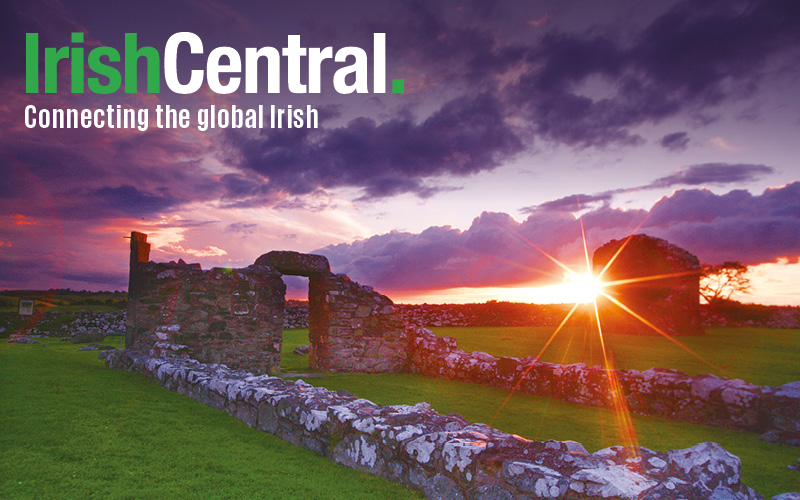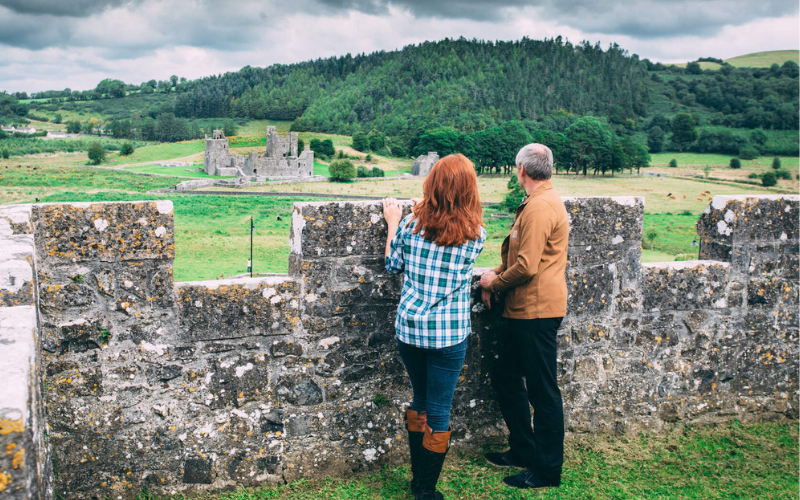This is apparently about a national sporting climax here at home at the end of September. Bear with me though because it is really an attempt to deal with an infinitely more important and beautiful and heartening reality.
My old heart is singing raucously out loud. If that mighty American football triumph by the Fighting Irish side in the Aviva Stadium at the start of the month was also a moving definition of the pride and purpose and power of the American Diaspora, then the upcoming clash of Mayo and Donegal in the All-Ireland football final this coming Sunday, September 23, is also magnificently special at a level far above that of a mere football match. Hurrah!
Those of you who were not born in Ireland should know that the football final of our own game is by far the most important contest each year. It is more popular than soccer or rugby internationals by far.
It's nearest rival is the hurling final, also of our thrilling national small-ball code (Irish hockey) and the hurling final would actually rival the football title clash easily were it not for the fact that its heartland regions are concentrated in Leinster and Munster. In fact the final was already played and it resulted in a thrilling draw between Galway and perennial champs Kilkenny, and a replay is set for September 30.
Good hurling from the likes of Kilkenny, Tipperary, Cork and Waterford is a sight never to be forgotten. Catch a game as soon as you can.
But back to football for now. Each of the 32 counties fields a team for the championship every year.
This has the effect of strongly defining each county's identity and pride.
The games eventually produce four provincial champions, and they battle in the semis for a coveted place on Croke Park's hallowed sward in Dublin each September. Kerry has a tradition of producing very talented footballers, and they win the famed Sam Maguire trophy more often than any other county.
Over the last few decades the final is contested normally by a bare handful of the top sides, Kerry, Dublin, Cork, Galway. The outsiders rarely get a look in. Dublin, beaten by Mayo, were the outgoing champions.
Dig a bit deeper than the mere sporting stats and there is an intriguing subworld there, in my opinion anyway. It is that the counties which contributed most strongly to the diaspora over the centuries, counties like Mayo and Donegal in particular, have been hugely disadvantaged by being ravaged by enforced emigration.
It could be said they gave the cream of every footballing generation to the Diaspora. It continues to this day as we all know. And while the GAA has always remained a powerful force in all counties along the west coast, with passionate support, the scourge of emigration always seemed to make an impact when the chips went down in the crucial big games in Croke Park.
Take the case of Mayo. The county has always produced magnificent footballers of classic style and skill, yet it is 60 years since they won Sam Maguire.
Many times in the intervening years I've seen them "fold" to lesser sides in the big games. Some of the heart and gut seemed to have emigrated. You'd often think that, deep down, they did not believe they could win and accepted the fact. A curse of emigration?
There was another element to their perennial showings. Team members who were champions of their clubs often played as individuals rather than as members of a combined team.
They were so used to bearing the load of two players in club teams weakened by emigration that they performed like one-man-republics, just controlling their own opponents and zones rather than contributing enough to the wider picture and purpose.
Possibly that reflected the life battle in counties along the west coast. In weakened communities the men and women had to stand on their own two feet, fiercely independent and determined, in order to survive.
I think that background somehow contributed a lot to the repeated football failures, despite the continuing richness of individual talent. The same situation is largely true of Donegal, though they did win one All-Ireland title inside the last 20 years. Given their range of mighty players they could and should have won more.
But what is heart-lifting this year is that both the Mayo and Donegal sides are playing as real combined teams. It is no longer a case of every man for himself. They have both been working in perfect harmony and unison all season.
Both sets of forwards, for example, are always dropping back to aid their defenses. Both half-back lines, when they get the chance, are joining the attack and coming forward to take their scores.
Every man on both teams is as fit as professional players in other codes. They can run forever, and the majority of them are over six feet tall and built to match. The legendary teams of the past would not live with them for even a half-hour.
Heartwarmingly again, in my view, is that this sense of unity of purpose of the sporting sides seems to be drawn from a generally stronger sense of community in both counties. In response to the financial recession and harsher times, western communities generally have drawn themselves closer together and organized and worked for the common good.
There are imaginative community projects being generated about every week, and the positive evidence of those and the team thinking behind them is an index to the kind of fiery and resilient spirit displayed the other week by your own Fighting Irish.
On that basis it is with the greatest of joy I look forward to the Croke Park clash on Sunday between two resilient counties that have already survived the worst that can be thrown at them in the world outside the sidelines.
Maybe, as a neighbor and an Ulsterman, I marginally favor the men from Donegal but, fundamentally, I don't care all that much about the result. This is a football final which is much more than a football final, and both teams are winners just by getting there.
Good luck to them all.




Comments